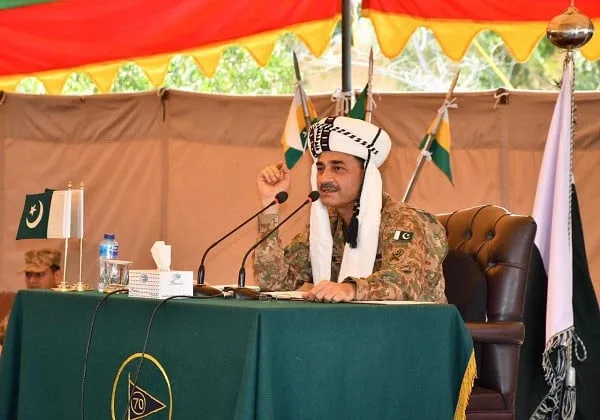Washington, D.C.—FARA filings, this week in the United States, reveal that a new lobbying firm, Team Eagle Consulting, has been hired by the military-dominated Pakistani government through the Islamabad Policy Research Institute (IPRI). The hired firm, Team Eagle Consulting, led by Stephen Payne, is set to receive $125,000 per month for its services, or $1.5 million annually—a significant increase compared to previous such contracts by Pakistani government or political parties.
Officially, as per the FARA filings, the firm’s purpose is to enhance U.S.-Pakistan relations, but media outlets and the Pakistani-American community suspect the move is aimed at improving the image of Pakistan’s Army Chief, General Asim Munir. Last week, prominent Pakistani journalist Moeed Pirzada, now based in Washington, had claimed that the Pakistani military is trying to counter the growing efforts by Pakistani-Americans to bring attention to human rights issues and the state of judicial independence in Pakistan. And a firm has been hired at huge costs, and its details may surface on FARA registration site soon.
Read more: CJP Qazi Faez Isa Retires Today: A New Era Begins with Justice Yahya Afridi
As mentioned in @MoeedNj vlog yesterday, General Asim Munir has hired American lobbying firm to improve his badly tarnished reputation (due to obvious reasons!) in US.
Here is the proof / copy of Agreement signed between Government of Pakistan (using cover company Islamabad… pic.twitter.com/4Ix62Lhl1R
— Jehanzeb Paracha (@JehanzebParacha) October 23, 2024
Image Building for Pakistan’s Army Chief?
Now sources within Pakistani media and communities believe that the real target of the lobbying is to reshape General Munir’s image in Washington, particularly amid increasing scrutiny from U.S. lawmakers. In June 2024, US Congress through a bipartisan resolution, HR-901, raised concerns on serious irregularities in Pakistan’s Feb 2024 elections and demanded that Biden administration should ensure accountability of elections, rule of law, human rights and media freedoms in Pakistan. This week, in October 2024, a group of 62 U.S. Congress members sent a letter to President Biden, advocating for sanctions, including visa bans and asset freezes, on Pakistani military officials – including the army chief Gen. Asim Munir – for human rights violations.
High costs of hiring Eagle Consulting raise several questions. First, it shows a steep rise from previous contracts in recent years. For example, the Pakistan Tehreek-e-Insaf (PTI) Pakistan’s largest political party had hired a firm in 2022-23 for $25,000 per month – which was then seen high end as compared to previous such contracts. Pakistani analysts now argue that the high cost of this contract, totaling about Rs. 420 million (or Rs. 42 crore, US $125,000 per month or US $1.5 million/year) suggests that the Pakistani military is directly funding the lobbying effort through IPRI. Because IPRI is merely an underfunded government think tank, with most funding coming from the military. Rs. 420 million may even be more than the routine annual budgets of IPRI which is not known for any parallel funding sources other than the Pakistani government. And within Pakistan, it has always been perceived as an institution run by the military and ISI.
The lobbying contract, to Eagle Consulting, is thus viewed by many as an effort to push back against the U.S. Congress’s growing interest in Pakistan’s internal affairs, particularly regarding human rights abuses. The lobbying firm’s official role includes outreach to U.S. officials, supposedly to promote better diplomatic relations. But in the past, Pakistani diplomacy was focused on responding to perceived pressures from pro-India lobbying groups that objected to weapon or spare parts supplies to Pakistan. But in recent months, all criticism on military controlled regime – and the situation of human rights and media freedoms – is emerging from Pakistani American communities.
Read more: Centcom Lauds Pakistan’s Army Chief for Counterterrorism Efforts
Therefore, its widely believed that the real goal is to stifle the mounting criticisms of Pakistan’s military by the diaspora and ensure General Munir’s image is rehabilitated among U.S. political circles. This development has drawn attention to the complexities of Pakistan’s internal power dynamics, where the military wields significant influence over civilian institutions. The broader implications of this lobbying effort remain to be seen, particularly as the U.S. Congress becomes more vocal about Pakistan’s human rights record. Whether this lobbying push will succeed in reshaping Pakistani military’s image or only further fuel controversy remains an open question.














